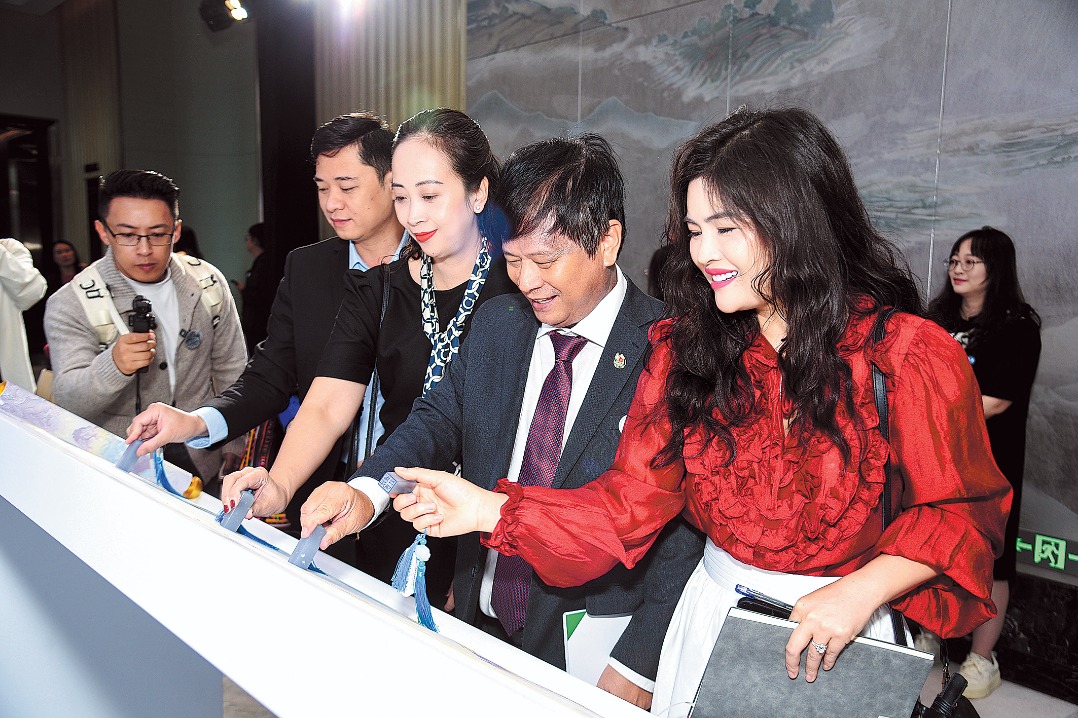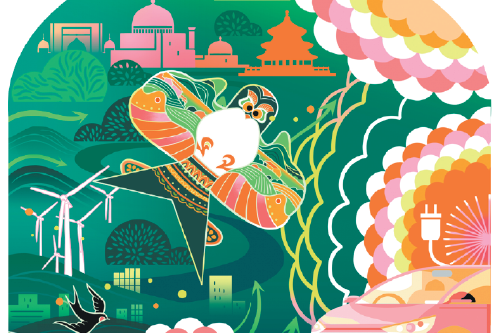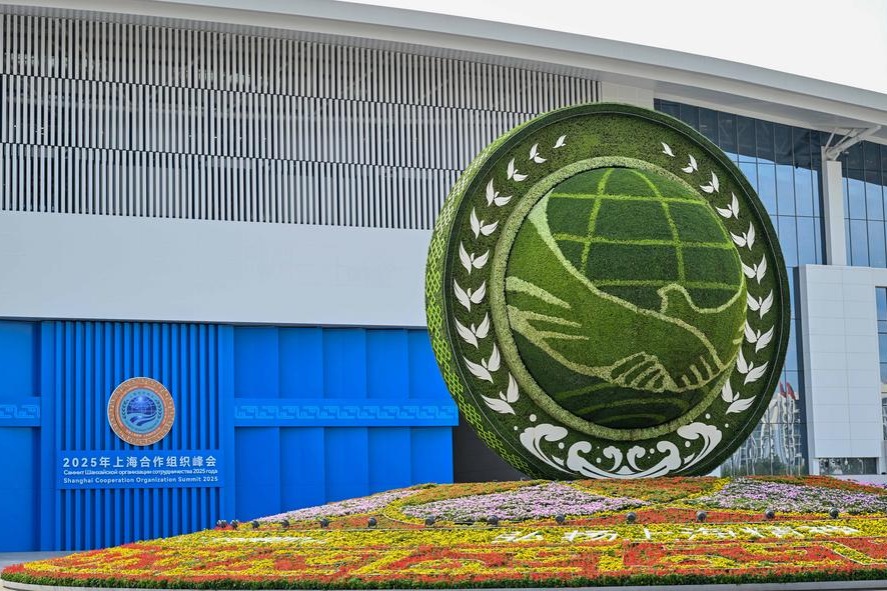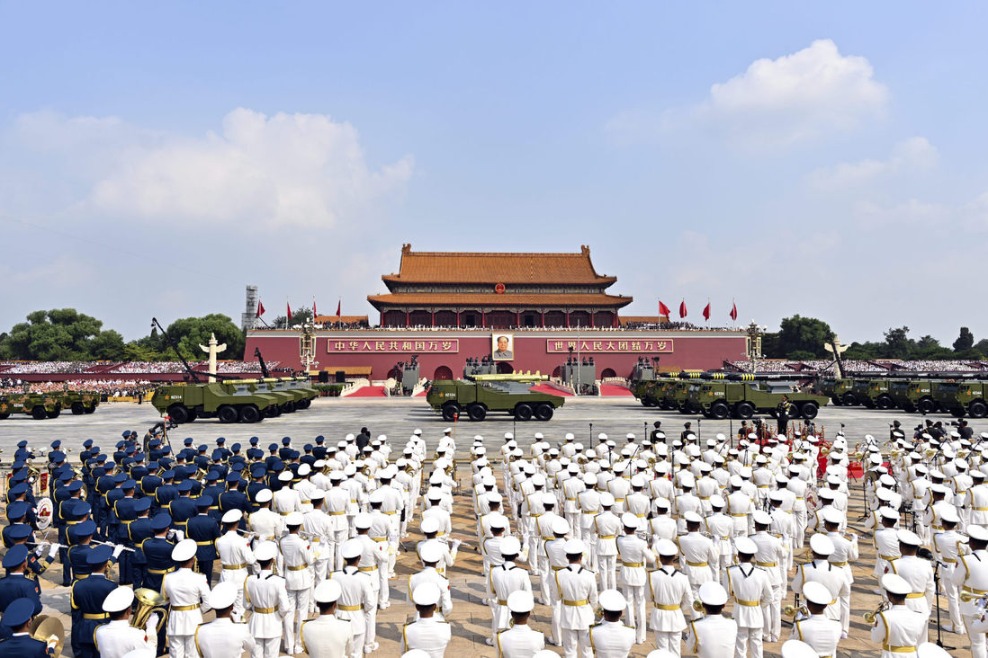Development propeller
Belt and Road cooperation with China is providing African countries with opportunities for industrial cooperation, skills development and technology transfer


Since it was first proposed by President Xi Jinping in 2013, China's Belt and Road Initiative-a transcontinental development project seeking to improve connectivity among nations in Asia, Europe, Latin America, the South Pacific and Africa-has become a key development platform that has proven to be economically effective.
In all, 52 African nations, and the African Union Commission have signed agreements for cooperation under the initiative, seeking to complement the continent's infrastructural gaps, increase foreign investment, expand trade and ultimately reduce poverty.
The Belt and Road Initiative provides opportunities for industrial cooperation, skills development and technology transfer that can promote African countries' economic diversification, which numerous African nations consider to be important for their development. The Belt and Road Initiative projects can create conditions for the African nations to break free from dependency and escape the trap of poverty.
Nevertheless, African nations need development strategies to ensure that their engagement with China under the Belt and Road Initiative is mutually beneficial. As a way of agreeing to this statement, the establishment of the China-Africa Union Coordination Mechanism for Implementing the Belt and Road Initiative comes at the right time, and it is a vital step to promote the implementation of cooperation projects between China and Africa.
It will also help promote the institutionalization and standardization of China-AU cooperation under the framework of the Belt and Road Initiative, enable the effective docking of the executive departments and resources of the two sides, and build mechanisms for exchanges and consultations.
All these build channels to ensure that Africa's engagement with China brings long-standing benefits to Africa. According to a report titled "If you want to prosper, first consider building roads: China's role in African infrastructure and capital projects "released by Deloitte in 2019, under the framework of the Belt and Road Initiative, China had participated in over 200 infrastructure projects in Africa by the time. It has completed and is building projects in the continent that will help to add and upgrade approximately 30,000 kilometers of highways, 2,000 km of railways, 85 million metric tons per year of port handling capacity, over 9 million tons per day of clean water treatment capacity, about 20,000 megawatts of power generation capacity, and over 30,000 km of transmission and transformation lines. The 156-km-long railway line between Lagos and Ibadan in Nigeria that became operational in December 2020 is another significant milestone for China's contribution in Africa.
China's investment in Nigerian industries and transportation in the past two decades has brought capital and expertise to Nigeria that is in urgent need of development. In spite of the COVID-19 pandemic and the global economic downturn it has caused, Nigeria and China's bilateral trade volume reached about $19.2 billion in 2020 and surged to $25.6 billion in 2021, up 33.3 percent. In 2021, Nigeria remained China's largest export market and its second-largest trading partner in Africa.
Industrial parks such as the Ogun-Guangdong Free Trade Zone and Lekki Free Trade Zone, built with Chinese help, are booming in Nigeria. The "Made in Nigeria" cooperation with China has played an important role in promoting Nigeria's industrialization. With Nigeria's further participation in the Belt and Road Initiative, the prospects for overcoming its challenges of poverty and unemployment will become much clearer.
China's contribution to several African nations' advancement aligns with their development strategies. That is why China and Africa should work together to build a high-quality Belt and Road that will grow into a road of collaboration to meet the challenges in people-to-people exchanges, a road to safeguard people's health, a road to promote social and economic recovery and a road of progress that will help us unleash development potentials.
The author is executive director of the Center for Nigerian Studies at the Institute of African Studies at Zhejiang Normal University. The author contributed this article to China Watch, a think tank powered by China Daily. The views do not necessarily reflect those of China Daily.


































